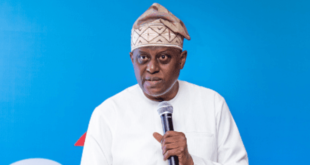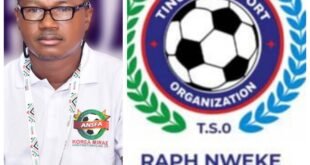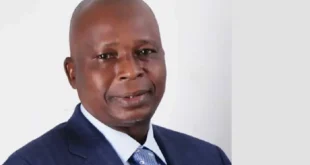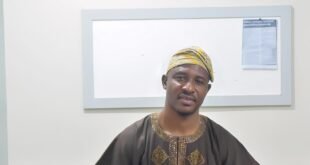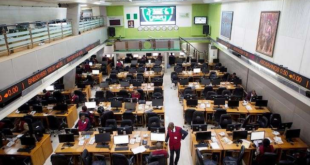Prince Charles Dickson Ph.d
Nigeria, the most populous nation in Africa, holds two remarkable distinctions: it has both the highest number of Muslims in the continent and even the largest population of Christians.
On a global level, Nigeria ranks among the peaks in both religions, rolling the sixth largest Christian population in the world and one of the largest concentrations of Muslims everywhere. For a pure number, Nigeria should represent a lighthouse of faith, morality and divine example.
However, the paradox remains: despite our crowded mosques and overflowing churches, our society is still full of corruption, injustice, insecurity and a shocking contradiction between faith professed and lived.
The Nigerian religious history is of complexity: of the old and new and new rituals that never disappear and a people who wear devotion on the lips but often challenge it in their actions. Talking about Nigerians and their gods means entering the space in which prayer meetings intersect with political theft, where the streets of the city are transformed into the ghost city on Friday and Sunday, but where on Monday the mornings are marked by the hustle and bustle of other citizens.
There is faith in numbers, in practice in practice as according to each measurable standard, the Nigerians are religious. In almost all offices, the government meeting and school collection, prayers begin and will be able to end the official functions. The criminal gangs also pray before embarking on their nefarious missions. We benefit the meals, recite the scriptures and fill the radio waves with sermons. The mosques call the faithful five times a day; The churches extend the services during the weekend with vigor.
But what did this avalanche of religiosity produce? Nigeria remains one of the most corrupt nations in the world. Governance is full of inflated contracts, billions of billions and leaders who give their name to God while looting public treasure.
A road project foreseen for billions of Naira is abandoned or performed so badly as to collapse in a few months. Who signs these contracts? Who turned on the money? Are they not the same men and women who guide prayers, finance cathedrals, build mosques and occupy front seats during religious ceremonies?
Here is the great irony: our religiosity has not transformed our morality. In fact, it seems to have become a convenient mask: an external cloak to hide the rot inside.
Christianity and Islam arrived in Nigeria centuries ago, bringing new texts, prophets and doctrines. Yet, under the refined surfaces of imported faiths, the oldest traditions remain alive. The Nigerians still sponsor the Voodoo priests, consult the doctors of the witches and invoke the African magic in private moments of despair. A politician can participate in Sunday mass in the morning and visit a sanctuary at midnight. An entrepreneur can recite Koranic verses but tie charms to its commercial doors.
This double devotion – proven monotheism mixed with hidden polytheism – reveals a deeper struggle: the Nigerians have not completely replaced their gods; They simply expanded their Pantheon. Faith in Allah or Christ often coexists with faith in ancestral spirits, divinator and traditional sacrifices. In times of crisis, many return to the old ways, in search of power or protection in which the modern religion and government have failed them.
Therefore, religion in Nigeria becomes less a matter of profound conviction and more a utilitarian research of survival, influence or luck. The gods, old or new, are reduced to tools of power rather than anchor of virtue.
We suffer the fanaticism and the weight of the extremes as despite the abundance of churches and mosques, the freedom of religious belief remains fragile in Nigeria. From sectarian violence to the north to discriminatory practices in the south, religious tolerance is often preached but rarely practiced. The extremist groups, notoriously Boko Haram, exchange their terror campaigns in religious rhetoric, killing those who refuse to enroll in their ideology.
Even within families and communities, interreligious weddings are disapproved and the members of the minority faiths face ostracism or persecution. The religious energy of Nigeria, rather than being used for unity, often becomes fuel material for conflict.
We remain a dangerous contradiction: a deeply religious nation, but perpetually in war with herself in the name of religion.
Consider the daily rituals of the Hypocrisy of the Nigerian official. A meeting begins with an opening prayer – more sincere, perhaps, in which God is invited to bless the resolutions. Therefore, the discussions follow, where decisions are made to divert the funds, inflate the budgets or marginalize certain groups. In the end another prayer is offered, thanking God for “a successful meeting”.
In this ritual, God is both invoked and derided. Prayer acts as a ceremonial cloak for systemic theft. The Nigerian religiosity has perfected this cycle: gradually sin, pray aloud, repeat indefinitely.
Our cities testify to this contradiction. On Friday, the streets empty while men and women flood the mosques. On Sundays, the roads are blocked by worshipers who attend more services. Yet, by Monday morning, many of these same worshipers can’t wait to cheat their neighbor, manipulate figures or exploit the system.
We proper to love God, but our love rarely extends to obeying his commands.
Here, the parable of the madman becomes instructive.
A rich man park his expensive car, just to return and discover that one of his tires are missing four bolts. Frustrated, it is despised until a madman suggests a simple solution: remove a bolt from each of the other three tires and use them to protect the fourth. Surprised by the splendor of the idea, the man asks how someone “crazy” can think so clearly. The madman replies: “I’m crazy, not stupid”.
This story is the mirror of Nigeria. We are a nation of rich resources, brilliant minds and boundless faith. Yet, we often act shockingly, parading our religiosity without applying its wisdom. Like the rich, we look helpless to problems – corruption, bad roads, poverty, insecurity – while the solutions are in plain sight. The lesson of the madman is that wisdom does not concern appearance but the application.
The religiosity of Nigeria is vast, but what we are missing is the wisdom to apply the moral essence of our faiths. We build large cathedrals and impose mosques but cannot build integrity, justice and love for the neighbor. We perform rituals but neglects justice. We pray for prosperity but cheat our systems. We live in the gods, but our gods – old and new – have not saved us because we have not lived their principles.
However, to be honest, not all Nigerians bow to this hypocrisy. Scattered throughout the nation there are men and women who live in the principles of their faith with integrity. The honest public employee who resists bribes. The teacher who presents himself every day in sub -childhood schools. The nurse who treats patients with dignity despite the low salary. The entrepreneur who refuses to cheat his customers. The religious leader who preaches justice rather than prosperity.
These Nigerians, although often drowned in the noise of corruption and fanaticism – emits the hope of the nation. They show that faith can really inspire virtue, that religion can transform society when applied sincerely. They remind us that the change will not come from the only prayers but from the actions aligned to those prayers.
The problem, therefore, is not the religion itself but the way in which the Nigerians practice it. Our gods – both Christ, Allah, or the spirits of our ancestors, are not to be blamed. The fault is with us: we invoke their names without embodying their values. We exalt them in adoration but abandon them in conduct.
If Nigeria has to rise from its contradictions, she must learn from the wisdom of the so -called madman: apply the principles already at hand. We must undress the religion of his hypocrisy and return it to his essence: justice, mercy, love and responsibility.
A nation that prays at dawn but steals at noon cannot thrive. A people that fills the mosques and churches but empty their institutions of integrity cannot progress. The Nigerians must decide whether their gods are simple ornaments for ritual lights or guidance for life.
Until then, our religiosity will remain noisy but empty, abundant but helpless. And like the man blocked by his car, we will continue to fix the problems, waiting for a madman to remind us that the solution has always been in our hands, perhaps Nigeria wins!
Post views:
64
 JamzNG Latest News, Gist, Entertainment in Nigeria
JamzNG Latest News, Gist, Entertainment in Nigeria
